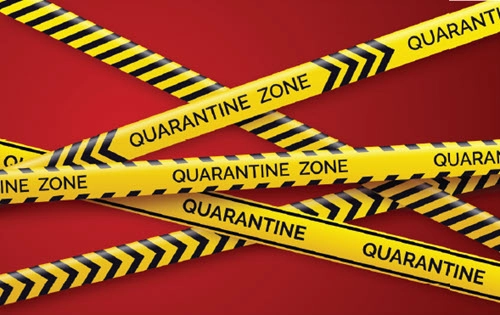Use This Surveyor Letter To Help Gain Facility Access
Even though CMS doesn’t govern assisted living facilities, the guidance may still hold some sway. If you’re still struggling to gain access to patients in skilled nursing facilities, a Frequently Asked Question set from the Centers for Medicare & Medicaid Services to state surveyors may help. “Health care workers who do not work in a nursing home, such as hospice workers, surveyors, Emergency Medical Services (EMS) personnel, or dialysis technicians, should be permitted to come into the facility as long as they meet the [Centers for Disease Control and Prevention] guidelines for health care workers,” says the document’s FAQ No.6. FAQ No.4 advises that “there are times when visits should be allowed” for “compassionate care situations, such as an end-of-life situation.” SNFs, hospices, residents, and families “can work together to identify when a visit for compassionate care is needed, and can be safely conducted,” CMS says. The FAQs may not help with facilities not governed by Medicare. But hopefully “these facilities and the state departments governing them will consider CMS’ guidance to nursing homes in the development and implementation of their guidance,” says the National Association for Home Care & Hospice. In a recent Centers for Medicare & Medicaid Services’ weekly COVID-19 call for home health and hospice agencies, three hospice speakers highlighted the access problem. Hospice staff are getting “lumped in” with visitors and not allowed in, noted physician Balu Natarjan, chief medical officer for the Seasons Hospice chain based in Rosemont, Illinois. “We want to get in, but we can’t get in,” said Katy Lanz, founder of consulting firm Topsight and National Hospice and Palliative Care Organization board member. “We just can’t get to people,” Lanz said in the call. Some facilities insist that they are doing end-of-life care on their own, but “things are missing,” said Susan Ponder-Stansel, CEO of the Community Hospice & Palliative Care chain based in Jacksonville, Florida. “The coronavirus pandemic is really exacerbating longstanding issues,” acknowledged a CMS official in the April 28 call. But the problem persists, hospices report. And when it comes to assisted and independent living facilities, CMS can’t offer much help. “CMS does not regulate these facilities, as they are subject to state jurisdiction,” the agency says in a revision to its memo to state survey agencies about home health agencies. But CMS advises HHAs — and other providers, including hospices — to keep at it. They should “coordinate with assisted living/independent living facilities to assure services related to direct clinical care can be provided in an appropriate and safe manner,” the updated memo continues. Providers will have some responsibilities, though. Their “personnel should participate in any screening activity that the facility requires,” CMS stipulates in the update. “If access is restricted, [providers] should communicate with the facility administration, including the state or local health department when indicated, on the nature of the restriction and timing for gaining access to HHA patients.” “We recognize … that the services you are providing are important,” the CMS official said in the April 28 call. But agencies will have to work it out with the state. Helpful: Make sure facility partners understand your staff are following all CDC procedures, the CMS staffer advised. Note: The FAQ set is at www.cms.gov/files/document/qso-20-28-nh.pdf.


